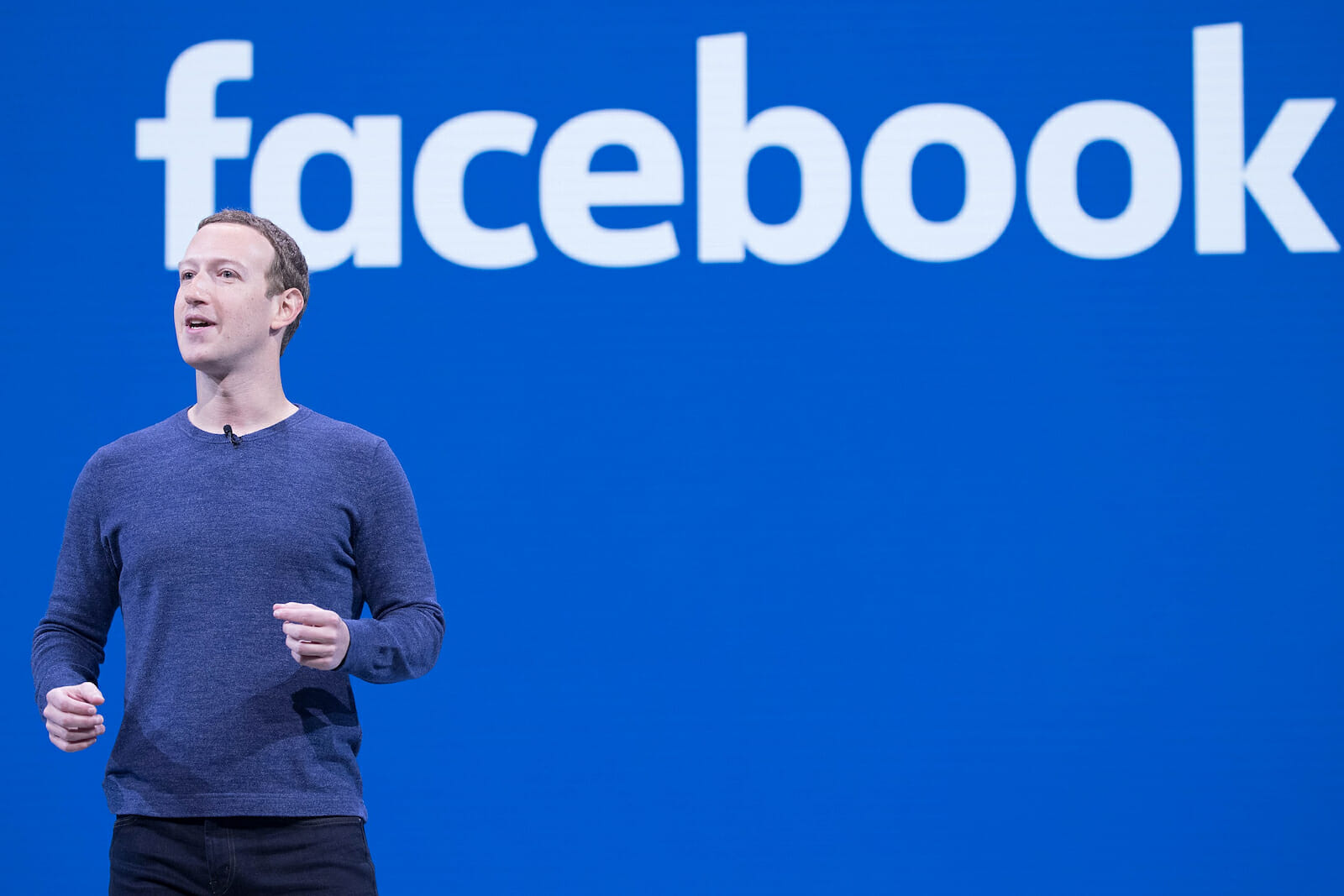
Politics
President Zuckerberg is Probably Inevitable
Mark Zuckerberg is (most likely) running for President. This is not meant to be an endorsement. I don’t know if he would make a good president, and there are legitimate questions as to the morality and ethics of his candidacy. That said, I believe he will be President someday if he wants it. Here’s why:
Zuckerberg’s stalwart defense of globalism, tempered by a nuanced understanding of its drawbacks.
At this time in contemporary politics, many ideological conflicts are less about “Left vs Right” and more about globalism vs its critics. In foreign policy, domestic policy and economics we currently see a strong and energetic backlash against the globalist paradigm that has steered decision-makers for the past couple decades. In the US, this backlash is most prominently exhibited by the election of Donald Trump.
Now, I do not believe Trump is an extremist against globalism. In fact, his views on immigration, trade, and foreign policy would have fit into the mainstream of either major US political party 20 years ago. He, like many, has determined that globalism is in need of a course correction to change the equation on its winners and losers.
Mark Zuckerberg is an outspoken advocate of globalism, free trade, and near-limitless immigration. He has this in common with most of his contemporaries in the US ruling class, but unlike many of the others, he acknowledges that individuals and communities can be detrimentally affected by the changes brought on by such policies. He does not vilify anti-globalist sentiment. Instead, he notes the need for local action to build, and rebuild, social structures to help individuals adapt and thrive in a changing world.
This from his Harvard address: “Progress now requires coming together not just as cities or nations, but also as a global community. But we live in an unstable time. There are people left behind by globalization across the world. It’s hard to care about people in other places if we don’t feel good about our lives here at home. There’s pressure to turn inwards. This is the struggle of our time…This is not a battle of nations, it’s a battle of ideas. There are people in every country for global connection and good people against it. This isn’t going to be decided at the UN either. It’s going to happen at the local level, when enough of us feel a sense of purpose and stability in our own lives that we can open up and start caring about everyone. The best way to do that is to start building local communities right now.”
Globalism will continue to be a defining political issue in American society for years to come. So what is Mark Zuckerberg doing to make globalism more palatable to its critics? In his “listening tour,” he has met with businesspeople and community leaders in every state to understand their challenges. He proposes local action based on a higher purpose, aided by technology to help local communities solve their problems.
Zuckerberg correctly understands the power of affirmative, purpose-based branding.
In the 2016 campaign, Hillary Clinton’s campaign message varied between the themes of “I’m With Her” and “I’m Not Trump.” Trump’s message was “Making America Great Again.” Look at which one ended up working. One could argue that Trump played to fear and negativity during his campaign, but no more than his opponent did. In contrast to Hillary Clinton, Trump’s core message was far more affirmative and purpose-based.
Mark Zuckerberg is cultivating an affirmative, purpose-based political brand. In keeping with his themes of community building, he will be able to develop inspiring, affirmative, targeted campaign messages for every audience he wants to reach. He’ll be able to point at the huge social network he built, and make policy proposals of how government can do better to help communities thrive.
Zuckerberg advocates a basic guaranteed income.
In the past, the ruling class told the workers being made redundant by globalization, outsourcing, and automation to go !!!! up a rope. Oh, actually they told people to “learn to code” or “move to a larger city” or something like that, but we all knew what they meant. This, plus rapidly-growing wealth inequality, has created building frustration that was a big contributor to the orange guy sitting in the White House right now.
The forces of globalization and automation aren’t stopping. In fact, they’re bound to pick up steam, even with the modest course corrections advocated by Trump and his allies. Whether we like it or not, a basic guaranteed income may eventually become a necessity to maintain social order. Zuckerberg understands this reality and is embracing it.

With basic minimum income, the working class and the middle class will have less reason to resist changes brought on by automation and globalization. They’ll be able to take more chances with their career decisions, learn a new trade or start a business… and they’ll feel more comfortable that the productivity gains enjoyed by the ruling class are also helping them.
Zuckerberg will be able to present a believable economic message.
When Trump made economic policy proposals, he could rely on his decades of proven business acumen to deliver a believable message. Zuckerberg is far wealthier than Trump, with a net worth of roughly $70B. Fittingly, Zuck’s social network has made a much bigger impact on the world than Trump’s business accomplishments. When Zuck tells voters how he will help the economy grow, he obviously knows of what he speaks.
Social media-savvy voters will have positive feelings about Zuckerberg.
Mark Zuckerberg seems mostly “baggage” free. Voters will not have to weigh decades of questionable behavior like we do with most political candidates. In addition, Millennials (a large voting block) are likely to have very positive feelings towards his candidacy, because they grew up with his service and they agree with his political leanings. This generation is adept with technology and social media, and Zuck’s campaign will know how to channel their acumen towards a successful campaign.
Zuckerberg will be able to self-fund.
Unlike Trump, Zuck’s billions are fairly liquid. They’re not tied up in debt-laden real estate developments. He won’t need to ask anyone for any money if he doesn’t want to; he could outspend what Hillary & Trump spent on their campaigns combined, and still retain almost 100% of his fortune.
Zuckerberg will have more access to data than any candidate in history.
Between his own company and the companies of the other tech barons likely to support him, Zuck will know voters better than they know themselves. It will be very simple for his campaign to “nudge” voter preferences to his advantage. Facebook’s role in shaping the news arguably played the role of kingmaker in the last election; it would be even more effective if intentionally used to support a campaign. One could argue that this technological advantage is not very ethical. I would argue that doesn’t matter.
Zuckerberg can, and will, use data to great effect. A contrary opinion comes from Scott Adams, who says voters will feel so manipulated by Zuckerberg’s data-driven campaign they will reject it. Scott Adams may be right. I would say a sophisticated campaign will be able to make voters feel otherwise.
A Huge Caveat: Zuckerberg needs to find his inner alpha.
Humans are animals. Deep down we want to feel our national leaders are strong and powerful alpha leaders. Alpha leadership can be communicated somewhat with words, but it is mostly communicated through non-verbal behavior. Here’s a few examples of recent presidential candidates who demonstrated alpha behavior, and a few who didn’t:
President Donald Trump is a high-energy, charismatic super alpha. You may think he is a con artist, or even revolting, but plenty of people would disagree with you. There is a reason why he starred in one of the most popular reality series of all time, and why he was able to win with no political experience.
President Barack Obama has amazing charisma and serious alpha swagger. I think Trump, knowing swagger when he sees it, correctly determined he could never beat Obama in a national election, and that’s why he didn’t run in 2012.
President George W. Bush was a terrible president, but he did have a compelling cowboy swagger that many people liked. Certainly enough to overpower the two stiffs who ran against him (Al Gore and John Kerry.)
Hillary Clinton, although somewhat lacking in charisma, had many powerful and compelling qualities of alpha leadership. I don’t agree with her worldview, but I admire that part of her personality.
President George H W Bush lacked alpha swagger, but he was able to ride on President Reagan’s alpha coattails. It didn’t hurt he ran against the nerdy Dukakis.
Though Bob Dole was a well-respected politician, his drab demeanor in ’96 was woefully outmatched by the smooth-talking swagger of Bill Clinton.
Ted Cruz is arguably the most book-smart person to run for President from either party in years, but he is greatly hindered by his awkward body language, tone of voice, and facial expressions. He does not speak to people’s animal brains, unless they are already inclined to agree with his message. I would be very surprised if Cruz is ever able to overcome his personality quirks enough to become elected President someday.
Mark Zuckerberg is glib and likable, but he is awkward, boyish, and has very little swagger. At this time, I don’t think he has the mojo to convince the animal brains of voters he can be an alpha leader. This may change as he gets older, or maybe he is hiding a side to his personality we haven’t seen yet. If not, he may very well end up falling into the Ted Cruz category.

